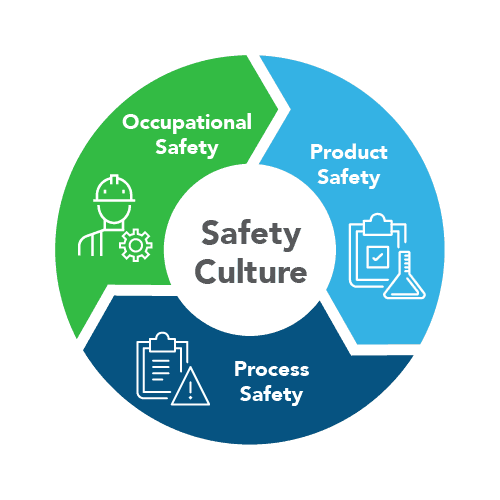
PSAIM Final Review
Quiz by PT Risk Matrix Consulting Indonesia
Feel free to use or edit a copy
includes Teacher and Student dashboards
Measure skillsfrom any curriculum
Tag the questions with any skills you have. Your dashboard will track each student's mastery of each skill.
- edit the questions
- save a copy for later
- start a class game
- automatically assign follow-up activities based on students’ scores
- assign as homework
- share a link with colleagues
- print as a bubble sheet
- Q1
Which of the following sounds like process safety culture?
a) Employees are involved in identifying hazards and deciding how they should be addressed. Employees take action to address hazards without management involvement.
b) Overlooks the weak signals of safety problems.
c) Often accepts and normalizes increasingly poor performance.
d) Places an emphasis on learning from past experience in order to prevent future problems
a and c
a and d
a and b
a, c, and d
60s - Q2
Which of the following a remarkable major accident was the background of OSHA’s PSM issued?’
Bhopal tragedy, India (1984)
Texas City Refinery explosion, US (2005)
Piper Alpha platform accident in North Sea, UK (1988)
Fukushima nuclear reactor, 2011.
30s - Q3
What is the activity in the Risk Management comparing between the estimated risk and risk criteria of the company to evaluate that the risk is accepted or not?
Risk Assessment
Risk Analysis
Transferring risk to the Insurer
Accept the risk by establishing contingency plan
45s - Q4
Which of the following types of emergency causes that company may be more frequently activate it?
Process safety incident
Natural Disasters
Pandemic
Intentional attack or sabotage
Incident at a neighboring property
30s - Q5
In the Process Safety Information element of PSAIMS, information on the hazards of the highly hazardous chemicals in the process shall consist of at least the following, except:
Toxicity
Process safety engineer competency
Reactivity data
Permissible exposure limits
45s - Q6
Which of the following condition representing process safety issues?
a) Likelihood of occurrence is greater but consequences are generally lower.
b) Hazards are often hidden (e.g. corrosion) and not well known or understood.
c) The likelihood of occurrences is lower but the consequences can be much higher.
d) Amore robust analysis is required to identify hazards (i.e., can cause harm).
e) Hazards are immediate and visible.
a and b
b, c, and d
c, e, and a
d, c and e
45s - Q7
Hazard Identification process must be on-going to ensure existing hazards are known, and new hazards recognized before they are introduced, except:
Prior to change in organization and career system
Employee feedback from routine participation in work
Plant condition monitoring, early warning signals
Prior to modification of facility
30s - Q8
Which of the following conditions that a major accident may happen?
A
D
B
C
30s - Q9
Process Safety is a blend of engineering and management skills focused on preventing catastrophic accidents, except:
explosions
fires
toxic releases
severe falls and trips
20s - Q10
Why have so many major incidents occurred during start-up and shutdown operations, except:
Fatigue
Time constraints and time pressures
Large numbers of leaders visit to the plant area.
Lack of familiarity with abnormal operations
30s - Q11
______is a process for evaluating and controlling modifications to facility, design, operation, organization or activities - prior to implementation.
PSAIM
PSSR
MOC
PHA
30s - Q12
True or False. Emergency Response is the first line of defense.
True
False
10s - Q13
What are the leaders’ role in Conduct of Operation?
Set expectations, monitor behaviors and deal with any operational issues
Make sure everything is right every time
Report deficiencies and monitor behaviors of operation
Follow procedures and practices
30s - Q14
Risk analysis is the activities in risk management that focus on the following, except:
Compare to risk criterion
Probability analysis
Risk determination
Consequence analysis
20s - Q15
The characteristics of major accidents are the following, except:
that they've probably already happen to someone else
they're entirely preventable
they can happen to us
we can afford to have one
20s
